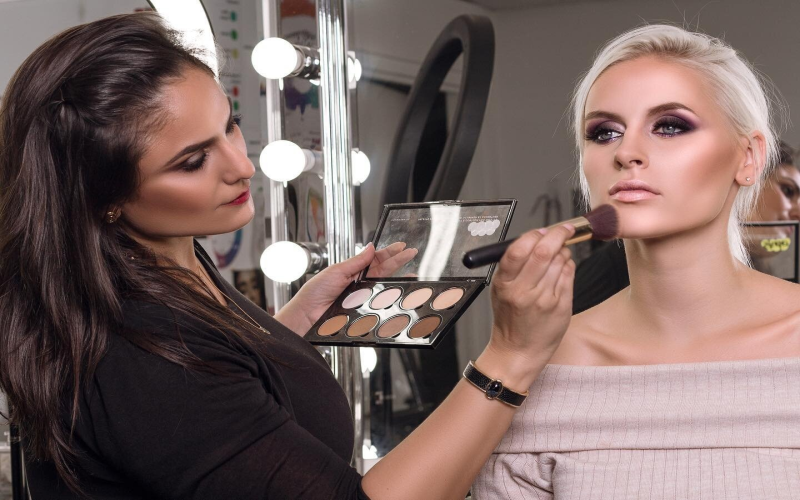In the specialised realm of makeup artist training programs, the integration of practical workshops and demonstrations stands as a cornerstone for enhancing the overall learning journey of students. As the beauty industry continues to burgeon, the requirement for proficient makeup artists escalates steadily. Hence, the methodologies employed in their training should be both instructive and engaging. Within this discussion, we delve into the profound impact that workshops and demonstrations wield in honing the abilities of fledgling makeup artists.
Guided by the mantra of experiential learning, hands-on workshops become invaluable platforms for the practical application of academic theory into real-life competencies. Unlike regular classroom learning, these workshops provide a practical atmosphere in which students can hands-on experience makeup products and techniques under the guidance of expert artists. Students learn the art of different makeup applications using practical exercises, from basic foundation routines to extraordinary special effects makeup.
One of the aspects where practical demonstrations prove to be most significant is the delineation of complex concepts and methodologies that are core principles of makeup artistry. The industry experts conduct makeup demonstrations, and the students learn about the finer details of makeup application through various techniques such as contouring, highlighting colour correction, and blending. Seeing the makeup artists at work at close range removes any mystery surrounding the artistry while developing a more profound admiration for the craftsmanship and precision it requires.
Furthermore, the workshop sessions encourage students to interact with each other, resulting in peer assistance and mentorship. Such a condition enhances peer-to-peer interactions, which, in the long run, leads to an environment whereby both experienced and upcoming makeup artists can coexist in harmony. Among the many benefits of cooperating with peers, students learn to work, be adaptable, and communicate effectively, which are the attributes often demanded by industry employers.
In pedagogical terms, makeup artist training involves practical workshops and demonstrations based on active learning and skill development principles. Studies show that students learning through practical exercises retain knowledge, assimilate skills, and remain more interested than those who understand only theoretically. By introducing practical segments in the curriculum, programs that train students address various learning styles and skills so that every student gets customised instruction that satisfies their needs.
The workshop provides a rich atmosphere for growing and nameshype developing creativity. It allows the students to display their artistic gifts and build their styles. When exploring various makeup styles, mediums, and aesthetics, individuals develop their technical proficiency and train their creative intuition, eventually enabling them to find their voice in the realm of makeup artistry. Thus, through these demonstrations, their work experience is enriched, and not only that, students gain the ability to adapt to the job market, which is now rapidly changing every single day as everything gets upgraded.
In conclusion, practical workshops and demonstrations are essential Naa Songs pillars within makeup artist training programs, embodying a holistic approach to honing skills, expanding knowledge, and fostering professional advancement. These hands-on sessions not only empower students to grasp theoretical concepts but also allow them to translate theory into practice, thereby deepening their understanding and proficiency. Moreover, through collaborative endeavours, such as group projects and peer feedback sessions, students cultivate vital interpersonal skills indispensable for success in the dynamic realm of makeup artistry. Besides being practical, these workshops provide a creative platform for crucial beginners to improvise, innovate, and improve their techniques with the assistance of professional artists. As the beauty industry evolves, advanced learning methodologies become unavoidable in developing a future group of creative, versatile, and visionary makeup artists who can fit perfectly into the ever-evolving, demanding professional makeup industry.

